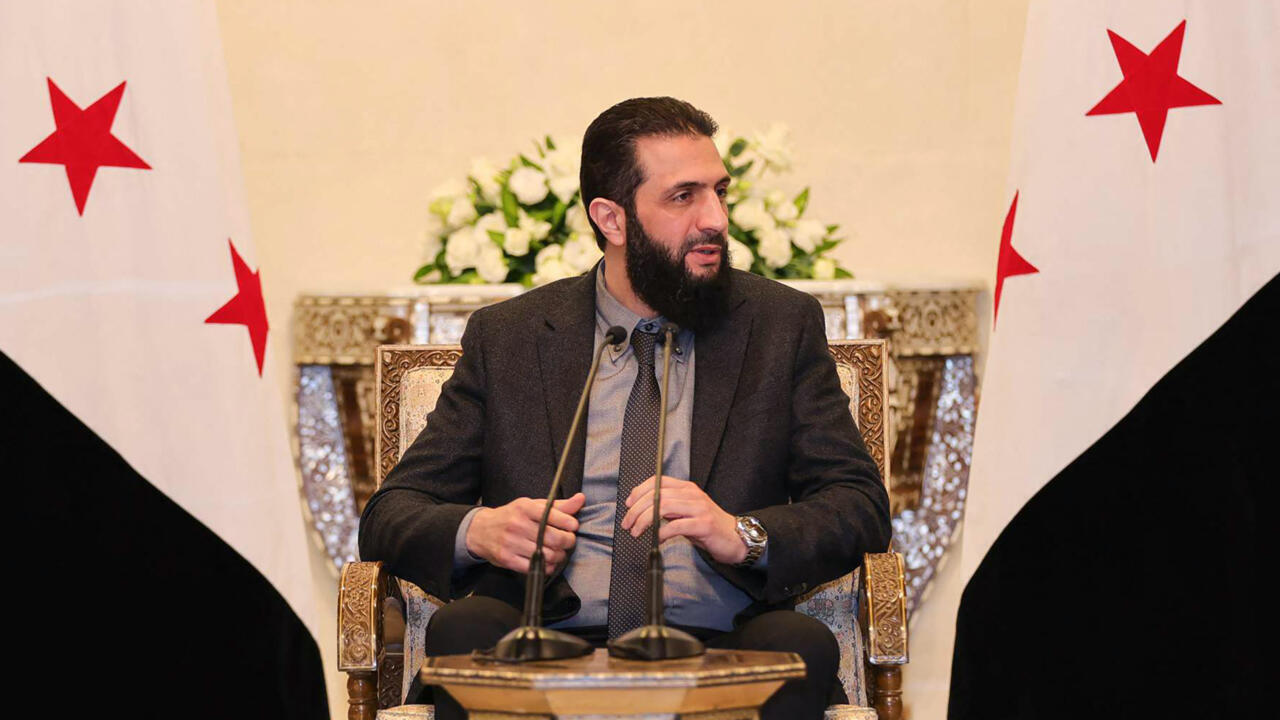The rapid advance of the Syrian Arab Army (SAA) to the northeastern border with Turkey, moving swiftly to restore government control over an area that for five years has been occupied by usurping Kurdish militias on behalf of US imperialism, signals a giant leap forward towards the complete liberation of Syria.
Barely a week after US president Donald Trump announced the immediate withdrawal of US forces from the area, giving Turkey the green light to invade Syria and crush the Kurds, the Syrian army moved to resume government authority, counter Turkey’s violation of the country’s territorial integrity and halt the wanton slaughter.
When President Trump dropped his bombshell, declaring that he would put an end to US involvement in what he terms “ridiculous endless wars” fought on behalf of “people who don’t even like the USA”, he caught the world by surprise.
On Monday 7, October he announced his intention to pull US troops out of northeast Syria, leaving the Kurdish allies in the area stranded and undefended against the threat of Turkish invasion from the north. This announcement was made unilaterally by the White House, with apparently no consultation with any of America’s allies, least of all with the Kurdish-led ‘Syrian Democratic Forces’ (SDF).
Two days later, having been given the all-clear by the US president, the Turkish army began its air and ground offensive, under the innocuous-sounding label of ‘Peace Spring’ .
It became clear that Ankara had no intention of limiting itself to the creation of a ‘safe zone’ on its border with Syria, but planned a clear sweep of the whole northeast enclave that is currently under SDF occupation. Certainly Turkish president Recep Tayyip Erdogan’s talk of constructing ‘refugee cities’ in Syria makes it clear that his ambition extends beyond the establishment of a buffer zone.
For five years the US has supported the Kurdish militias in their occupation of the oil-rich northeast of Syria, encouraging Kurdish separatist ambitions in exchange for having them act as guard dogs for US interests, creating obstacles to the Syrian army, and facilitating the theft of Syrian oil.
But Washington’s promotion of the Kurdish militia on Turkey’s southern border was always an anathema to Ankara, which feared the emergence of a cross-border secessionist movement.
In August, Washington tried to mollify the Turkish government by promising to establish a safe (ie, SDF-free) area on the border to be policed by joint US-Turkish patrols. However, this US attempt to keep riding two horses was not enough to pacify President Erdogan, who was soon denouncing the US promises as a ‘fairy tale’ and beating the war drum.
The shambolic and treacherous US retreat from the north-east of Syria reflects the chaos reigning in the highest circles of US imperialism, which is unable to unite around a clear policy of either dragging out a war which it cannot win or swallowing the bitter pill of defeat and abandoning the field.
The acute embarrassment caused by the inconsistencies in the president’s shifting stance, cruelly exposed in the stream of childishly bombastic tweets emanating from the White House, has obliged Republicans and Democrats alike to denounce Trump’s crass betrayal of the Kurds and no less crass handling of relations with Turkey.
How these critics from within imperialist ruling circles would handle the situation any better, however, is a mystery.
Trump is merely blurting out what others prefer to express in a more ‘nuanced’ manner. When he whines about all the dollars that the US has spent on buying itself a Kurdish army, or threatens to “obliterate” Turkey’s economy if its army “goes off limits”, he is merely expressing the cynical contempt for its allies that is fundamental to US foreign policy – though never so openly acknowledged.
Having failed to ride two horses at the same time, whilst very publicly moaning about the Kurds and the Turks alike, US imperialism has now succeeded in alienating both allies simultaneously, thus guaranteeing that the US departure from Syria will be as messy and humiliating as possible.
Under the guise of ‘creating a safe zone’, Ankara had hoped that by resettling some of the three million odd Syrian refugees in Turkey in a string of ‘refugee cities’ across the border in Syria it could achieve the double goal of containing the Kurds whilst establishing an enclave in Syria friendly to Turkey, thus weakening Syrian sovereignty. But Trump’s sudden abdication of responsibility for the region has destabilising consequences which threaten to plunge the area into chaos.
Turkey will not appreciate Trump’s warning that it must take responsibility for the Islamic State (IS, aka Isis or Daesh) prisoners currently being held in Kurdish jails. These jails, in addition to the refugee camps accommodating many Islamic State sympathisers, are already in a state of crisis.
With the prospect of the Kurdish militia either heading north to counter the Turkish invasion or fleeing south to escape it, there will be every likelihood of mass break-outs, creating fertile ground for an Islamic State resurgence.
The utterly cynical way in which the Kurds have been used to serve imperialist ends and then abandoned to their fate when no longer useful must be convincing wiser heads that there is more of a future to be had in a united, independent, multi-ethnic and secular Syria than in pipe dreams of a Kurdish enclave carved out of Syria’s hide and ‘protected’ by fair-weather imperialist ‘friends’.
Even before the arrival of the Syrian army onto the scene, a pundit from the right-wing Chatham House think-tank, Lina Khatib, was warning that if, as seems likely, there is a mass flight of beleaguered Kurds into government-held areas, the result could work to the long-term benefit of national unity:
“The US has made it clear that it would not get involved were Turkey to clash with the Kurdish-dominated SDF – this leaves the SDF vulnerable in the event of a Turkish incursion into northeast Syria. Such an incursion would push the SDF southwards, closer to Syrian regime-held areas.
“The Kurds had already opened channels of communication with the regime, and this would increase their accommodation of its interests.” (Trump withdraws US troops from northern Syria ahead of Turkish offensive, Middle East Eye, 7 October 2019)
With the Kurdish request for assistance from the SAA, imperialism’s worst fears have been confirmed.
Turkey’s invasion of Syria was long planned, much trailed and a secret to nobody, least of all Trump. But no sooner had he fired the starting pistol than he was issuing dark threats about obliterating Turkey’s economy if Erdogan went (non-specifically) ‘off limits’.
This process has apparently begun, with a 50 percent increase in steel tariffs, and Washington is putting pressure on the European Union to join it in a sanctions war.
At the time of writing, the army has taken a number of towns in the northeast, including Manbij, Tell Tamer and Al-Thawra. There was a beautiful moment, captured on video by RT, when the Syrian army, advancing towards the Kurdish-held border town of Kobani to protect it from Turkish attack, met up with US troops as they scuttled off in the opposite direction. The US convoy did not stop to ask for directions. (One out, another one in: Retreating US military meets advancing Syrian army, 14 October 2019)
Khan Sheykhun reveals its secrets
Meanwhile, whilst Trump was busy unleashing bloody chaos east of the Euphrates, the Syrian army has been pressing on with the liberation of Idlib province, where jihadists from all four corners of Syria have gathered to make a last stand.
At the end of August, major terrorist stronghold Khan Sheykhun fell to the army. This was a gain of great strategic value, owing to the town’s position squatting on the main road from Homs to Aleppo. Losing control over that highway will severely restrict the terrorists’ room to manoeuvre.
Mopping up after the liberation, the army found a massive underground command centre in an extensive network of caves near the town, thought to have been home to some 3,500 jihadis. Crates full of weapons and ammunition lay abandoned in the tunnels, including US-manufactured anti-tank missiles, and there were cages which it is assumed were used for captives.
Evidence was also found of a drone factory and a field hospital. This latter appeared to have doubled up as a film set, prompting the suggestion that this could have been the very facility used by the infamous White Helmets to shoot its film of a fake chemical attack in Khan Sheykhun in 2017 – an ‘attack’ which then served as a pretext for the USA to launch a missile attack on Syrian forces.
Indeed, White Helmet uniforms were found scattered in the rubble. (RT tours fortified caves in Syria, 27 September 2019)
Yemen fights back
It is the desperate struggle of the US to maintain its stranglehold on markets and resources in the middle east that has forced it into one ‘ridiculous endless war’ after another, from Afghanistan, Iraq and Libya to Syria. These adventures have all failed disastrously, serving only to hasten the spread of anti-imperialist resistance across the region.
And now Syria is proving to be the rock that breaks the imperialist back, resisting every effort to overturn its government or break up its homeland.
By its steadfastness and endurance the Syrian resistance struggle is serving as a beacon for the masses in the region and beyond. The astounding victories now being chalked up by the Yemeni resistance against its Saudi oppressors must send a chill down the spine of the other corrupt feudal sheikhdoms upon which, alongside Israel, US crucially relies to help police the middle east.
In September Yemen’s resistance unleashed a devastating drone strike against Saudi oil processing plants in Abqaiq and Khurais, at a stroke halving Saudi oil production and inflating global oil prices by almost 20 percent.
This attack by David against Goliath demonstrated the failure of Saudi Arabia’s latest hi-tech air-defence technology to withstand assault by drones flying under the radar. So embarrassing was the failure that both Riyadh and Washington refused to credit the Houthi resistance forces with the daring strike, preferring to point the finger at Iran.
Ignoring this, the resistance then widened its sights to include the United Arab Emirates (UAE), partners in crime with the Saudis, warning Abu Dhabi that dozens of Emirati targets would suffer similar drone attacks unless the UAE withdrew from Riyadh’s war.
In the wake of the drone strike, the resistance offered Saudi Arabia a ceasefire in exchange for a halt to the Saudis’ genocidal bombing. When this proposal just met with further bombing, the Houthis then announced the success some weeks earlier of a big ground offensive in the south of the country in Najran region, when several hundred Saudi troops had been killed or captured.
The prisoners included a number of high-ranking officers, and the Houthis had also taken possession of a big stash of weaponry and armoured vehicles that will clearly prove much more useful in the hands of the resistance.
Victory to the Yemen resistance!
Victory to Syria!
















